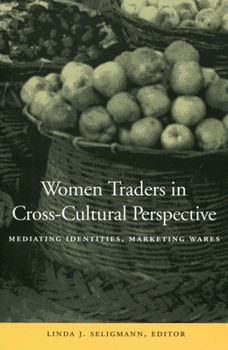Women Traders in Cross-Cultural Perspective: Mediating Identities, Marketing Wares
Select Format
Select Condition 
Book Overview
This innovative volume studies women as economic, political, and cultural mediators of space, gender, value, and language in informal markets. Drawing on diverse methodologies--multisited fieldwork, linguistic analysis, and archival research--the contributors demonstrate how women move between and knit together household and marketplace activities. This knitting together pivots on how household practices and economies are translated and transferred to the market, as well as how market practices and economic principles become integral to the nature and construction of the household.
Exploring the cultural identities and economic practices of women traders in ten diverse locales--Bolivia, Ghana, Hungary, India, Indonesia, Mexico, Morocco, Nicaragua, Peru, and the Philippines--the authors pay special attention to the effects of global forces, national economic policies, and nongovernmental organizations on women's participation in the market and the domestic sector. The authors also consider the impact that women's economic and political activities--in social movements, public protests, and more hidden kinds of subversive behavior--have on state policy, on the attitudes of different sectors of society toward female traders, and on the dynamics of the market itself.
A final theme focuses on the cultural dimension of mediation. Many women traders straddle cultural spheres and move back and forth between them. Does this affect their participation in the market and their identities? How do ties of ethnicity or acts of reciprocity affect the nature of commodity exchanges? Do they create exchanges that are neither purely commodified nor wholly without calculation? Or is it more often the case that ethnic commonalities and reciprocity merely mask the commodification of social and economic exchanges? Does this straddling lead to the emergence of new kinds of hybrid identities and practices? In considering these questions, the authors specify the ways in which consumers contribute to identity formation among market women.





